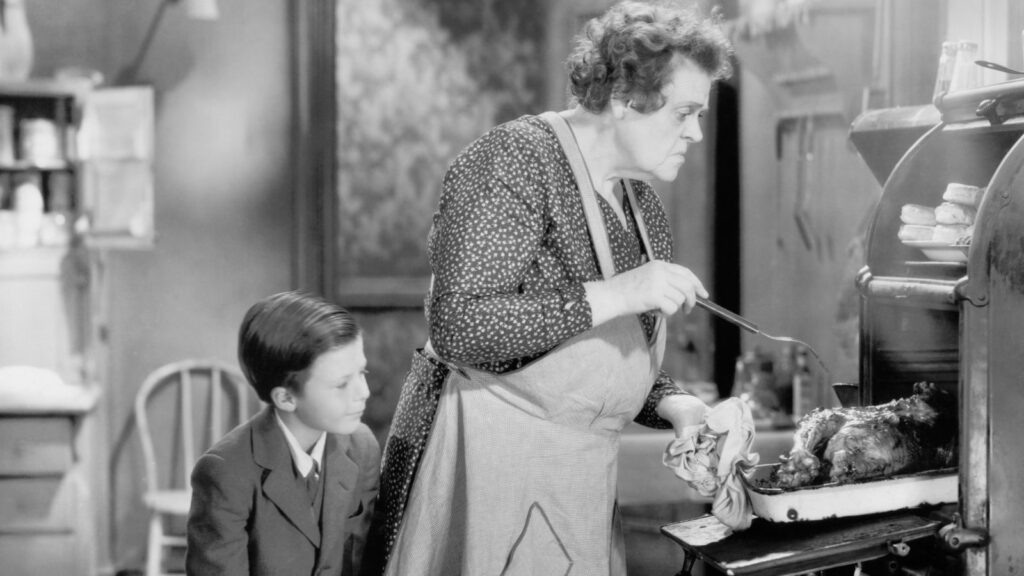Some of our phrases are as American as apple pie, and that means they don’t really make sense outside the States. Here are 25 American phrases that might get lost in translation if you’re talking to someone not from here. And we don’t just mean in places that don’t speak English because even people from across the pond or down under probably won’t get them.
Y’all

“Y’all” is a phrase that comes straight from the heart of the Southern U.S., and it’s pretty comforting to hear. While people in other places would probably use “you guys” or just “you,” “y’all” adds that touch of Southern hospitality that you can’t really find elsewhere. It’s all-inclusive.
Fixin’ To

If you’re “fixin’ to” do something, you’re about to get started, and it’s another phrase you’ll hear a lot in the South. In some American cultures, it’s shortened to become “finna.” People in other countries would probably think you’re repairing something when you’re “fixin’ to” do it but not here.
John Hancock

Need a “John Hancock?” No, we’re not talking about the statesman, although he does have something to do with it. His signature on the Declaration of Independence was pretty flamboyant, and his name has now come to mean a signature or autograph. Unless you know our history, you won’t understand this one.
Quarter Of

“Quarter of” is confusing to other English speakers mostly because they’ll likely use “quarter to” instead. And if you think about it, “quarter of” makes way more sense to use when telling the time than “quarter to,” since it’s a shortened version of “quarter of the clock.” What exactly is a “quarter to” the clock?
Pack Rat

If you call someone a “pack rat,” you’re basically saying that they’re a hoarder and they can’t bear to throw anything away. There’s an actual reason we only use it here, and that’s because pack rats as a species are only found in North and Central America. Honestly, we’re a little jealous of other countries because pack rats are huge.
Ride Shotgun

In America, “riding shotgun” means sitting in the front passenger seat of the car, and it comes from our unique history. During the Old West days, the person sitting next to the driver usually carried a shotgun to protect themselves. So, it’s no surprise that people in other places don’t know what it means.
Cattywampus

“Cattywampus” is something that even some Americans might get confused about, as you’ll only really hear it in the South or Midwest. You use it to describe something that’s not quite right or not how you expected it to be. And, according to Merriam-Webster, it can even mean some kind of fictional, savage creature.
Gussied Up

We use “gussied up” when we’re talking about dressing up nicely, usually for a special occasion. It’s a cool way to tell someone you’re getting ready for something like a wedding or even just a fancy night out. It’s not a phrase you’ll hear in places like the UK, and they’d probably just be confused if you did.
Hushpuppies

Hushpuppies are little balls of fried goodness that no Southern meal is complete without. Originally, they were a quick way to use up the leftover batter, and there’s an old story that people would give them to barking dogs to “hush the puppies” during cookouts. Whether that’s true or not, they’re a treat almost every American loves.
Tailgate Party

Most people in other English-speaking countries won’t know what a “tailgate party” is, and that’s because they don’t exist there. Before a football game, fans will pull up to a parking lot, drop the back gates, and start having a feast. If you’ve never been to one, you’re missing out on a pretty big part of American culture.
Jaywalk

“Jaywalking” sounds like something strange, but it’s really just when you run across the road without using a crosswalk. It comes from the word “jay,” which used to mean someone stupid, which kind of fits if you’re doing this. In some cities, you can actually get fined for jaywalking because it’s so dangerous.
Buck

Yes, some people in other countries will know what a “buck” is, but it’s not something they’ll always use themselves, even in Australia, where they use the Australian dollar. For example, in England, they call a pound a “quid.” “Buck” actually comes from the times when people traded deer skins as currency.
Plead the Fifth

Here’s another phrase that’s uniquely American because of our history. “Plead the Fifth” means you’re avoiding a question because of the Fifth Amendment, which allows you to avoid saying anything in court that could make you look guilty. Other countries also have this law, but they don’t talk about it in this way.
Snowbird

Snowbirds are people who chase the sun. As soon as it gets cold, they’ll pack up and head south for sunnier skies, like migrating birds. Snowbirds are usually retirees and they’ll swap their snow shovels for sunglasses in places like Florida or Arizona. They want to get the most out of their retirement, just without the frostbite.
Sneakers

Yes, other countries have “sneakers,” but they won’t call their comfy and casual shoes that. In Australia, you’re more likely to hear “runners” instead, while in England, they call them “trainers.” “Sneakers” actually comes from the fact you can wear these shoes to “sneak” around silently, thanks to the soft rubber soles.
Two Bits

Back when coins were the only way to pay, “two bits” meant 25 cents or a quarter of a dollar. It comes from the old days when they’d cut Spanish dollars into eighths to make change easier, although it’s not something we do today. We don’t even have a single “bit” anymore, so it’s no surprise this phrase can be a little confusing.
Monday Morning Quarterback

If you’ve ever had some regrets about a decision and wished you could have a do-over, then you were a “Monday Morning Quarterback.” You’re looking back after everything’s happened and nitpicking what could’ve gone better, sort of like a coach after a football game. There’s not really an equivalent to this phrase in other places.
For the Birds

When there’s something that’s not worth your time or effort, it’s “for the birds.” Originally, this phrase meant something was only good enough for birds, but it’s changed to now mean something’s not catching your interest or even worth it. It has also come to mean that it’s only useful for gullible people.
Cool Your Jets

If someone’s getting really worked up, you’ll probably tell them to “cool their jets.” You’re trying to get them to relax and regain their composure. It comes from actual jet planes, as they literally need to cool their engines after flying. The first recorded use of the phrase actually comes from a newspaper in 1973.
Dime a Dozen

“Dime a dozen” is a phrase that’s not used in other countries because of the currency, as other countries don’t use dimes. You use it to talk about something that’s so common that you can find it just about anywhere, although it’s not always a good thing. Sometimes, people will use it to say that something’s pretty much worthless because it’s so common.
Put Up Your Dukes

Telling someone to “put up your dukes” is an invitation to a fight. “Dukes” used to be a slang word to talk about someone’s fist, so you’re basically telling someone to defend themselves or get ready for action. Originally, the full phrase was “put up your dukes of York” because “york” was rhyming slang for “fork,” which meant “hands.’ Who would’ve thought this phrase was so complicated?
Chew the Fat

Have you ever found yourself just talking for the sake of it? Then you were “chewing the fat,” which means you’re just shooting the breeze and having a good conversation. It probably comes from the old days when people chewed on tough pieces of meat while they talked and relaxed together.
Hit the Hay

When you’re ready to crash and get some sleep, you’re “hitting the hay.” This one’s quite literal, as it comes from the times when mattresses were just sacks of hay, and hitting them meant you were settling in for the night. There are even other versions of this phrase, like “hit the sack,” which come from the same thing.
Bite the Dust

Yes, the rock band Queen might’ve given us the most famous example of “bite the dust,” but it’s still a pretty American phrase. It’s definitely dramatic. There’s no exact answer for where it came from, although it could come from an ancient Greek phrase which was to “bite the Earth” when someone dies.
Ride or Die

When you’ve got a friend who’ll stick with you through thick and thin, they’re your “ride or die.” And honestly, who wouldn’t want that? It comes from biker culture, where your “ride or die” was literally the person you’d ride out with, no matter the danger. Thankfully, it doesn’t have to be so literal today.
19 Grim Realities of Dating After 50 That Are Often Overlooked

19 Grim Realities of Dating After 50 That Are Often Overlooked
26 Things That Will Be Extinct Because Millennials Refuse to Buy Them

26 Things That Will Be Extinct Because Millennials Refuse to Buy Them
24 Outdated Slang Terms You Absolutely Shouldn’t Be Using Anymore

24 Outdated Slang Terms You Absolutely Shouldn’t Be Using Anymore
25 Hardest Parts About Getting Older That No One Ever Talks About

25 Hardest Parts About Getting Older That No One Ever Talks About






